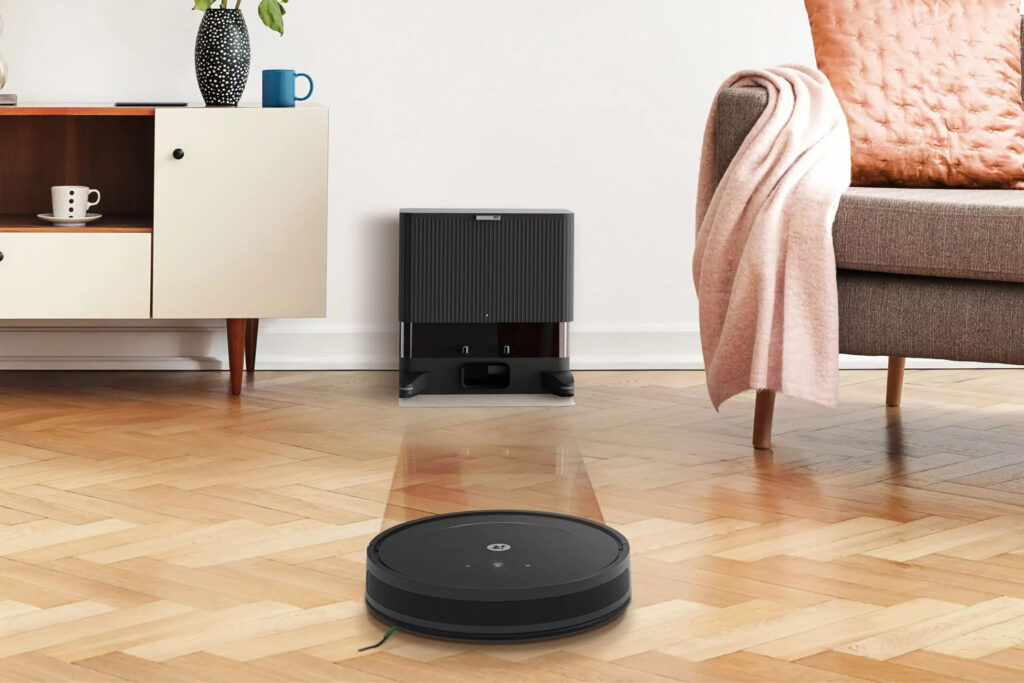All the smart home technology in the world won't keep your property any safer if the power runs out. Ring alarm sensors are an effective way to get some peace of mind and an additional layer of security, but plenty of Ring users report issues with battery life.
Nothing spoils that peace of mind quite like having your batteries run out while you're away from home. Luckily, troubleshooting Ring battery problems is easy, fast, and gets your smart home security system running again in no time at all.
Ring alarm sensor batteries can run out quickly due to cold weather, bad or old batteries, or if they're on the edge of the signal range of the Ring base station. Cold weather and improperly closed sensor cases can also lead to problems with your batteries. Some users have even reported that installing their Ring alarm sensors on magnetic surfaces also lowers their battery life.
If you've been burning through the batteries you better check out these tips for improving battery life in Ring alarm sensors.
The Ring Alarm System

Ring has an entire suite of home security systems. These are all built around the Ring alarm base station. This acts as your central control for your alarm system.
Information feeds into the Ring alarm base station through motion sensors, contact sensors, and the flood and freeze sensors. These sensors send real-time information into the base station which can then trigger the alarm based on your settings.
There's also the Ring Protect security monitoring subscriptions. This unlocks a few bonus features like extended warranties for all of your Ring devices, professional security monitoring, and even discounts on Ring products depending on the protection plan you select.
These security devices also connect with Ring’s other products. These alarms and sensors are a great addition to Ring cameras and the ever-popular Ring doorbell. While those devices aren't purpose-built for security, they are great additions to home security systems as well as a foot in the door for people looking to test out smart home security.
What Kinds of Batteries Do Ring Alarm Sensors Use?
You might be used to smart home devices that need to charge in order to operate. Just like smartphones, plenty of smart home devices operate using lithium-ion batteries that are rechargeable. However, Ring’s contact and motion sensors take a classic approach to powering up.
The sensors rely on batteries to function. That's right, no rechargeable Lithium-ions here, only good old-fashioned batteries.
Ring Contact Sensors Batteries
The 1st generation of Ring contact sensors used CR123A batteries while the 2nd generation uses CR2032 coin cell batteries. These batteries need to be replaced, on average, every three years. However, they can also need more frequent changes if something is going wrong with your devices.
- 1st Generation Ring Contact Sensors – One CR123A Battery
- 2nd Generation Ring Contact Sensors – Two CR2032 Coin Cell Batteries
Ring Motion Sensor Batteries
The 1st generation of Ring motion sensors used a single CR123A battery, whereas the 2nd generate motion sensor uses two AA batteries:

Here’s how you can stop your Ring sensor batteries from running out of juice so quickly.
Why Ring Alarm Sensor Batteries Run Out Quickly
There's a wide variety of reasons why your Ring sensor battery is running out too quickly. This could be caused by environmental conditions or just how you’re storing your batteries. These are the most common causes for Ring alarm sensor batteries to fail—and how you can fix them!
It’s Too Cold
These types of batteries are really don't like cold weather. The colder it gets, the quicker these batteries lose their charge. If you live in a particularly cold climate or there was a snap freeze this winter, you can find it at your Ring alarm sensor batteries run out much more quickly than they do in warmer months.
In order to understand why batteries dislike the cold, we're going to have to talk about a little battery science. Whether we’re talking rechargeable batteries or disposables, they all produce electricity through a chemical reaction. When the weather gets cold, this chemical reaction can slow down which causes a drop in your batteries' efficiency.
This cold weather can be especially difficult on disposable batteries. The cold weather not only harms your efficiency, but it also causes the batteries to rapidly discharge. This could be why you're burning through batteries with sensors that are on windows and external doors.
You have limited options when it comes to keeping your batteries warm. You can always increase the temperature inside, but there's not that much you can do for battery-powered devices that are outside.
Ring alarm sensors that are connected to windows and doors can always be repositioned in order to help keep them warm and functioning in colder weather.
Bad Batteries
Disposable batteries can also just be duds.
It's easy to spot a battery that just doesn't work right out of the pack. However, one of the bigger problems are batteries that have already lost most of their charge by the time they would make their way into your device. These batteries run out of electricity quickly and make it look like something's wrong with your Ring alarm.
The good news is that most batteries, even from budget brands, can meet your Ring sensors three year battery usage expectancy. You can always buy a commercial battery tester to check the overall charge of your disposable battery before installing them your alarm sensors.
Checking the charge of your alarm batteries is a great idea if you're heading on vacation, and you're going to be away from home for a while. You definitely don't want these batteries running out when you're on the other side of the country.
Case Not On Correctly

This is another common problem that can cause some battery issues for Ring’s alarm sensors. A case that's not on correctly can also make it seem like your batteries are constantly running out.
If the case isn't properly secured, your battery might not be properly connected. This might cause the battery it to discharge much quicker than it's meant to when it's properly installed and its housing.
A case that's not properly closed can also trigger tamper alerts. These alerts will make it seem like your batteries have either died or they've gotten low on power when in fact it's just your case not being tightly closed.
Double check to make sure that your cases are correctly closed, and you should solve this problem instantly.
Signal Range Issues
Now we have to talk about how these Ring sensors communicate with the base station.
Every Ring sensor communicates to the base station using Z-Wave connectivity. These sensors have a Z-Wave range of up to 250 feet, but you might not be getting all of that range. Things like the layout of your home, the materials it is built out of, and other devices on your network can all cause problems with your Z-Wave signal strength.
Ring alarm sensors that are too far away from the base station struggle to keep their connection going. This can cause the battery to drain quicker because the sensor is working overtime to stay connected to the base.
Plenty of Ring users have reported that adding a Z-Wave range extender (such as the Ring alarm range extender) to their smart home ecosystem improved the battery life on Ring sensors that were burning through disposal batteries.
Magnetic Interference
We talked a little bit how they Ring alarm sensors connect with the base station, but how do they detect when a door or window opens?
Half of your Ring contact sensor is actually just a magnet. The other half has some electronics that detects how close the sensor is to the magnet. When the sensor gets far enough away, it triggers the alarm.

If your Ring contact sensor is connected to a surface that's also magnetic, this can be draining your battery much quicker than it if it was connected to a non-magnetic surface. This is especially the issue for connecting these contact sensors it to metal doors or metal window frames.
The most effective solution would be to switch out metal doors and window frames with their non-magnetic equivalents, but changing out an entire door just to save a sensor might not be the practical choice.
You can also try repositioning your sensors so that the side with the electronic components isn't connected to a magnetic surface.
Defective Sensors
Last but not least we have to talk about problems with the Ring sensors themselves. These sensors are built to pretty high standards and don't usually experience too many factory defects. However, if none of our other troubleshooting techniques have saved your battery life, it might be the sensor that's to blame.
Here's where that extended protection plan of your Ring Protect Plus would come in handy. If your sensors are outside of their warranty dates, you can also try returning them to the original retailer or getting an exchange for a working model.





